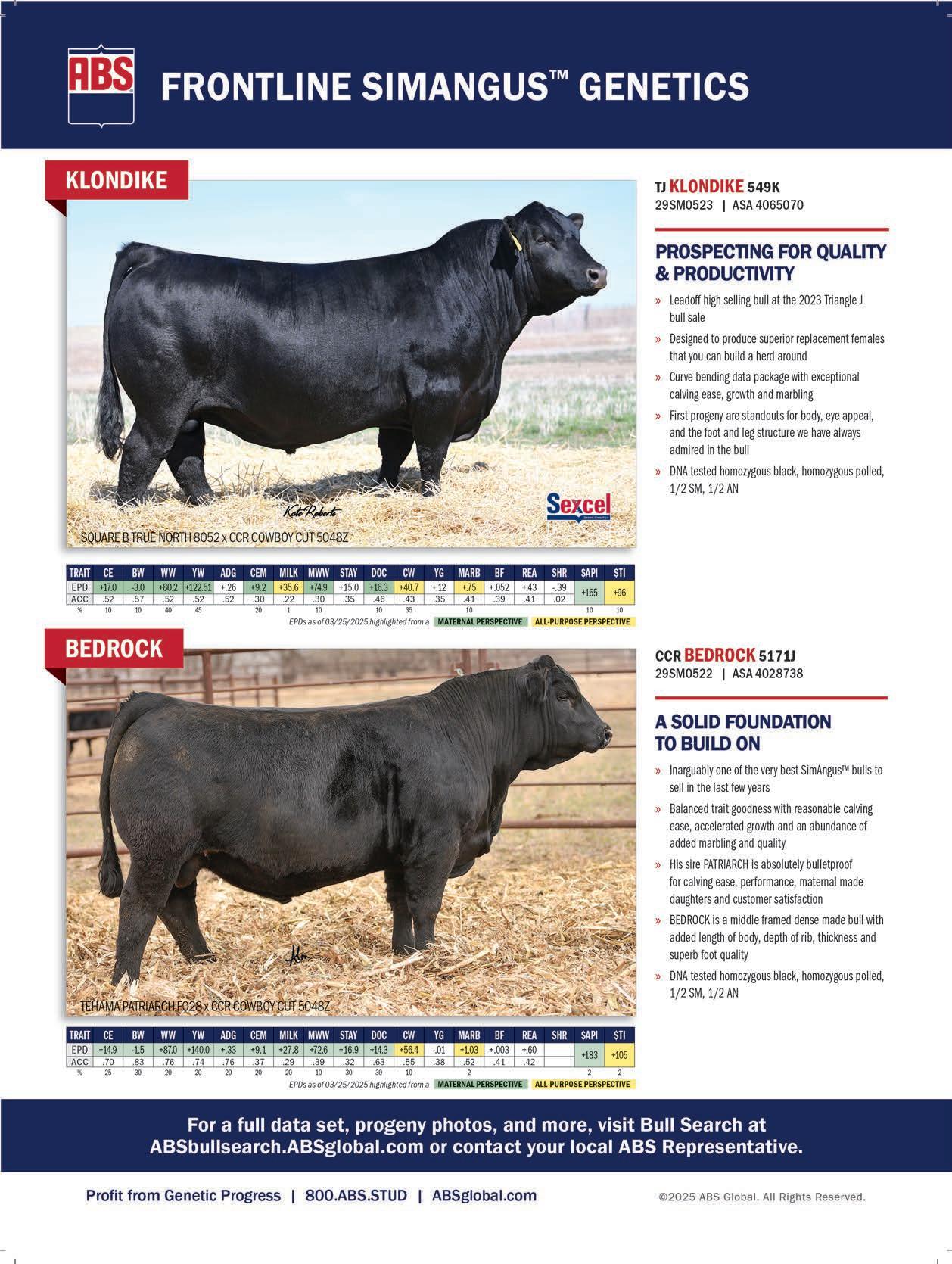by ASA Staff
The American Simmental Association membership recently voted to approve a resolution requiring a GGP-100K genomic panel on all herd bulls/natural service sires born on or after January 1, 2025.
While it will take time for this rule to impact the membership, it is imperative that seedstock providers begin planning. A genomic test (GGP-100K or equivalent) has been required on all AI sires for some time; now, any natural service sire born on or after January 1, 2025, must meet the same DNA requirements (GGP-100K testing) as AI sires and donor dams before any of their progeny can be registered. The following guidelines can help members, and those applying for registration, prepare for this change.
Who does the rule apply to?
All herdsires born on or after January 1, 2025, must have a GGP-100K test. The following scenario describes how this rule applies: In 2028, Mr. Smith applies for registration on bull calf 1S. The calf is the result of natural service. The calf’s sire was born February 1, 2025, and is not DNA tested. Mr. Smith is not able to register bull calf 1S because the rule change requires natural service sires born on or after January 1, 2025, have the same DNA requirements as AI sires and donor dams. 1S cannot be registered until his sire meets the current DNA requirements. If the sire of Mr. Smith’s calf had a 100K test completed, the registration of 1S would not have been delayed.
The GGP-100K testing requirement applies to herd sires and AI sires (in addition to donor dams). Both members and non-members applying for registration must follow this rule. As has been the case for AI sires and donor dams, the owner of the parent animal is responsible for the testing. ASA cannot force any breeder to complete this testing, however, making it extremely important for members utilizing AI sires, donor dams, leasing herd sires, etc., to verify that testing is complete.
When does this rule go into effect?
The rule change was voted on by the ASA membership and is officially in place. However, because it will take time for any bull calves born after January 1, 2025 to begin siring calves, the rule change will not immediately affect the membership. It is never too early to prepare, and by collecting and submitting DNA samples on bull calves born this spring and beyond, producers can prevent any future issues.
Why is this testing now required?
DNA testing has become an increasingly important tool for genetic progress. The GGP-100K test includes parent verification, which is critical for ensuring the accuracy of the ASA Herdbook. Parentage mistakes are an inherent part of raising cattle — heifers mix up calves, the AI tech grabs the wrong straw of semen, etc. — and knowing that parentage is accurate is extremely important, especially for any bull siring progeny. Beyond parentage, the GGP-100K test includes access to the multi-breed genetic evaluation. Genomically Enhanced Expected Progeny Differences (GE-EPD) are a game-changer for commercial, seedstock, and all beef producers in between. The GGP-100K panel evaluates the molecular makeup of approximately 100,000 specific locations on the animal’s genome, some of which have influence on various traits we predict (growth, carcass, stay, etc).
The difference between GE-EPD and standard EPD is mostly seen in the form of increased prediction accuracy. Animals that have GE-EPD have significantly improved accuracy for all EPD as young animals. The way this improvement in prediction accuracy can be measured is by reflecting any improvement in a progeny equivalent. A progeny equivalent is the quantity of progeny an animal would have to have born, measured for a trait, and reported to the ASA to receive the same increase in accuracy from a genomic panel. In the case of most of the growth traits, it would take ~25 progeny before a nongenotyped animal would receive the same prediction accuracy as a genotyped animal.
Requiring a GGP-100K test on all herdsires will further improve genetic predictions, EPD accuracy, and the forward progress of SimGenetics cattle.

How can this testing be done?
ASA’s DNA Department offers several options for testing animals, including blood and hair samples, and Tissue Sampling Units (TSUs), which are recommended. Testing is ordered through the ASA office. ASA’s contracted laboratory has an expected turnaround time of 4–5 weeks for results once the sample reaches the lab. Shipping, sample failures, etc can add additional time. Breeders are encouraged to plan ahead when collecting samples to avoid any delays in sire approval or the registration of progeny. This testing should be completed by the seedstock provider in a timely manner, ensuring that the responsibility is not passed on to the customer. Many seedstock providers are already completing GGP-100K testing on sale bulls in order to provide GE-EPD to their customers, and in doing so will already be meeting this new requirement.
The Calf Crop Genomics (CCG) program can also help producers navigate this change. This program offers discounted pricing and additional rebates on whole-calf crop genomic testing. A GGP-100K panel is offered at half the price of the normal testing — reduced from $50 down to only $25/head — with opportunities for additional rebates for phenotypic data reporting. More information on CCG can be found at simmental.org under “Programs.”
If you have questions about this rule change, or want more information on DNA testing, please contact the ASA DNA Department (

